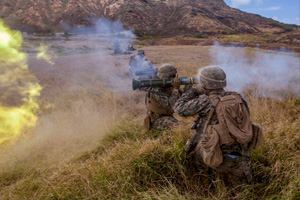FORCE READINESS

(FR)
Strategy, Policy, and Programming
Provide strategic-level direction across the DoD readiness enterprise and ensure readiness
implications are represented in national strategy and programming decisions.
Assessments and Analysis
Develop tools and lead and support assessments that drive proactive2 decision-making for
senior leaders and expand the Department’s ability to anticipate and address impacts
to readiness.
Defense Readiness Reporting System - Strategic
Oversee the development, operation, sustainment, and modernization of the Defense Readiness
Reporting System – Strategic (DRRS-S).
Global Force Management and Mobilization
Represent readiness equities in Global Force Management (GFM), global posture, and Reserve
Component (RC) mobilization decisions.

Professional Military Education
(PME)
PME helps Service Members develop the knowledge and habits of mind essential to the military
profession. FE&T provides direction, guidance, and oversight for PME institutions across
the force.
Military Training and Exercises
The joint training of individuals, units, and staffs to support Combatant Command missions,
often with Allies and Partners, is critical to ensuring our national security.
FE&T’s Military Training and Exercises portfolio includes programs such as the
Joint Training, Exercise, and Evaluation Program (JTEEP), Joint & Integrated Operations
Training (JIOT), and Joint Assessment and Enabling Capability (JAEC).
Language Programs
The Department works to build and maintain robust language, regional expertise, and culture
capabilities across the Total Force in order to protect our national security. Our Language
Programs develop, advocate, and oversee policies, strategies, and initiatives designed to
meet this objective now and in the future.
Broadening Opportunities
The Department invests in rising leaders in a variety of ways as part of the development of
our forces and capabilities. The Strategic Thinkers Program and SECDEF Executive Fellows
Program engage a select number of military officers and civilian employees in innovative,
year-long education and training opportunities designed to prepare our future leaders to
meet the evolving objectives and needs of the Department.
FORCE SAFETY & OCCUPATIONAL HEALTH

(FSOH)
Operational Safety
Advise and manage Defense strategy, policy, oversight, and resource review and advocacy for
aviation, ground, motor vehicle, afloat, weapons, and space safety programs.
Occupational Safety and Health
Manage evolving occupational safety and health risks, develop policy, conduct oversight, and
review and advocate for resources. Includes occupational safety, industrial hygiene,
occupational medicine, hearing conservation, laser safety systems, ionizing radiation.
Represent DoD equities with the Occupational Safety and Health Administration (OSHA).
Defense Safety Oversight Council
FSOH is the primary support for the Defense Safety Oversight Council (DSOC) and all
associated SOH Task Forces and Working Groups. The DSOC provides governance on DoD-wide
efforts to reduce mishaps, incidents, and occupational illnesses and injuries. It is
supported by the DSOC Integration Group, DSOC Steering Group, and subordinate working
groups.
Force Risk Reduction (FR2)
FSOH oversees the operation, sustainment, and modernization of the Department’s
enterprise-level, safety data warehousing, monitoring, and analysis tool. FR2 helps DoD
Components evaluate trends, identify areas of concern, reduce risks inherent in daily
operations, and improve overall readiness by using information to support mishap prevention
activities.
https://fr2.safety.army.mil
DoD Safety Management Center of
Excellence (SMCX)
FSOH oversees and manages the SMCX, a central resource that provides commanders, safety
professionals, and DoD employees with proven risk management solutions and technologies.
Through SMCX, FSOH supports DoD with Safety Management System (SMS) implementation, SOH
information sharing, compliance, training, employer-employee relations, and culture change.